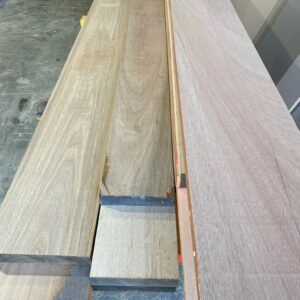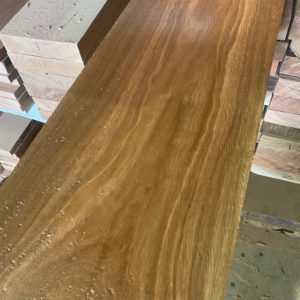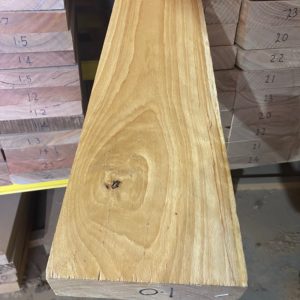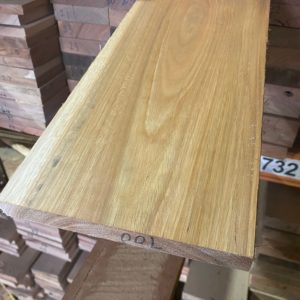Beech dimensional timber kiln dried and skip dressed ready for your next project.
Random lengths available between 0.9m-6m.
Price per lineal meter.
Come in store to select your timber.
Let us know your size requirements and we can pack your order.
Dressed all round and cut to size services are available, contact us for a quote.
If you would like your timber freighted to you, we can organise a quote.
Common names: Beech, Tasmanian Myrtle, Southern Myrtle, Myrtle
Scientific Name: Nothofagus cunninghamii
Common Applications: While myrtle beech is a strong and dense timber, it is not particularly durable and is primarily an appearance timber. Its main applications include decorative veneers, paneling, high-end joinery, furniture and flooring. Other applications include bridge and wharf decking and plywood.
Workability: Myrtle beech only provides a moderate workability but will deliver a very smooth finish – perfect for internal applications. It can be difficult to glue and care needs to be taken when nailing to avoid splitting the timber. It is suitable for steam bending and turning. Myrtle beech generally accepts most timber coatings and oils well.
Myrtle beech, also known as Tasmanian myrtle, is a medium-sized hardwood that mainly grows in the temperate rainforest areas of Tasmania and eastern Victoria. While its name may imply otherwise, myrtle beech has no connection to the European myrtle. The name ‘myrtle’ is believed to have come from the early timber workers.
The heartwood can be pink or a more popular warm reddish brown and may also feature traces of orange, while the sapwood is pale and narrow. Even-textured, myrtle beech has a fine grain that can be straight, interlocked or feature a fiddleback pattern. Growth rings may also be visible. The burls and knotty wood of myrtle beech are favoured by craftspeople.
While myrtle beech is good for steam bending, it only provides moderate workability. Some collapse can occur through drying.
A strong and dense timber, it is not particularly durable, and due to its generally colour-rich appearance, myrtle beech is favoured for internal applications such as decorative veneers, high-end joinery, furniture and flooring. Myrtle Beech is also used for bridge and wharf decking and plywood.





